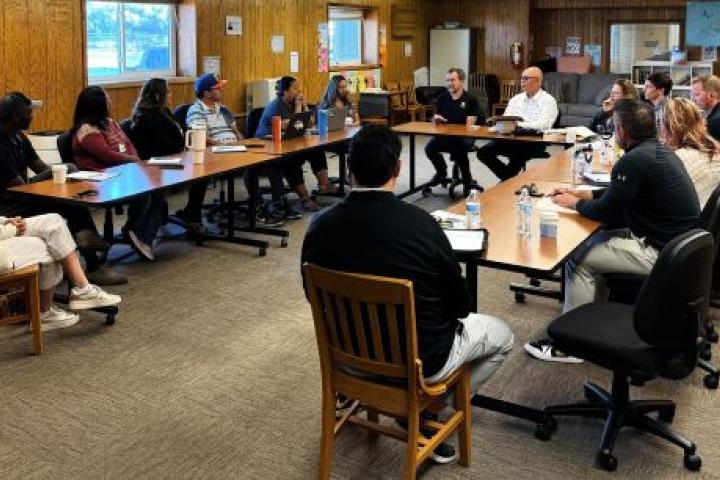Issue
September 2022
A Holistic Look at the Value of Higher Education
Cost should never be a barrier to an excellent education. At the University of Colorado, we’re working hard to break down that barrier and helping students and families reduce the cost of earning a college degree.
Image

Cost should never be a barrier to an excellent education. At the University of Colorado, we’re working hard to break down that barrier and helping students and families reduce the cost of earning a college degree. At the same time, we know the value of a degree remains a point of contention for many people who take a bottom-line approach: Does someone’s future income justify the cost of earning their degree? While the answer is yes, we must broaden the conversation to account for the many other factors that contribute to the very real value of a degree.
These factors include things like job satisfaction and having diverse career opportunities, home ownership, personal health and happiness, civic engagement and more. It’s important to consider a more holistic picture as we quantify value. Rather than relying on anecdotal measures or gut instincts, we’ve tried to create a more thorough assessment.
Using data from the U.S. Census Bureau, the Centers for Disease Control and Prevention, and the National Opinion Research Center, we developed the Value Index to help illustrate a more complete view of the value a college degree adds over the course of a person’s lifetime. We measured data in five areas:
- Economic
- Health
- Civic and social
- Professional
- Home
And examined the data through the lens of educational attainment:
- No college degree
- Associate’s degree
- Bachelor’s degree
- Advanced degree
The findings were clear. Across the board, more education results in higher Value Index scores.
Graduates with bachelor’s degrees score approximately twice as high on the Value Index than those with no degree. This means that people with college degrees are paid better, have lower rates of unemployment and are more satisfied with their careers. But, perhaps more surprisingly, they also are healthier, live longer, are more engaged with their communities, and have higher rates of home ownership and housing mobility than those without a degree.
If we drill down into specific variables, the results are striking. Here are a handful of highlights:
- Economic: When comparing earnings, those with a bachelor’s degree earn twice as much as people with no degree over their working lives.
- Health: When comparing the average lifespan of people with bachelor’s degrees and people without degrees, those with more education live longer than those with less.
- Civic/Social: People with bachelor’s degrees vote in more elections than those without degrees. General happiness is another area in which people with college degrees score substantially higher than those without degrees.
- Professional: Career satisfaction is twice as high for people with bachelor’s degrees versus people with no degree.
- Home: People with college degrees own their homes at more than twice the rate of those without degrees.
We think it’s critical to offer a comprehensive picture of the value of a degree. It’s also crucial to consider things that aren’t measured but are no less valuable, including the varied people you meet at college, the different viewpoints you’re exposed to and the curiosity you cultivate. We know we have work to do at CU to reflect the diversity of our great state. As we make progress in this area, we believe it will add even more value to a CU degree.
It’s important to note that our Value Index doesn’t reveal any new information. It simply reaffirms what studies have been telling us for years: You’re better off with a college degree, no matter what you study. Yes, certain industries are more lucrative than others, but when looking at the whole picture, it’s the degree, not the field, that makes a huge difference in a person’s life. But don’t take my word for it. I urge you to review the data for yourself.
While it’s impossible to predict what the future holds for our students, one thing is certain: By earning their college degrees, they’re setting themselves up for fulfilling, happy lives.
We’ll continue to spread the word about the full value of a college degree, and work hard to ensure the path to that degree is clear and accessible to anyone who wants to travel it. We’ll continue engaging with and listening to the people of Colorado so we ensure we’re providing the opportunity, community and programs Coloradans need.
CU News
Students’ Return Energizes Campuses
President Saliman and the chancellors helped welcome new and returning students to CU Boulder, CU Denver and UCCS during move-in week.
Key Hires in System Administration Leadership
President Saliman recently named Judi Diaz Bonacquisti as senior diversity officer and Chad Marturano as chief financial officer for the CU system. Both have deep experience in higher education.
Capps Joins CU as Chief Information Security Officer
In his new role at system administration, David Capps will work to align and strengthen the university’s cybersecurity efforts.
From the Campuses
CU Anschutz Medical Campus
The Cherry Creek School District recently selected CU’s Department of Psychiatry and Children’s Hospital as partners in opening a mental health day-treatment program for district students.
CU Boulder
In last month’s newsletter, we highlighted the CU/Western Colorado University engineering partnership, but neglected to mention the program it was modeled for: Our longstanding partnership with Colorado Mesa University.
CU Denver
In partnership with Colorado Smart Cities Alliance and Innosphere Ventures, CU Denver will use a $2 million federal grant to launch a smart cities incubator and accelerator program that will fuel workforce development in tech industries.
UCCS
The College of Engineering and Applied Science broke ground on the Anschutz Engineering Center at the end of August. The center will help accommodate growing numbers of engineering students and increasing industry demand.



